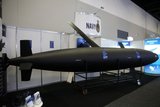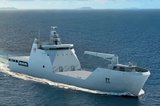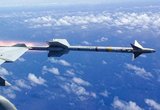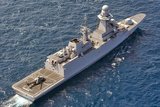What capabilities are being tested under AUKUS Pillar II?
Collaboration on AUKUS Pillar II extends beyond the core trilateral agreement, presenting global opportunities for companies with advanced technologies.
The US State Department has made a determination approving a potential foreign military sale of Standard Missile-3 (SM-3) Block 1B missiles and SM-3 Block 2A missiles to Japan, the Defense Security Cooperation Agency announced on 19 November.
In a package worth $561 million, Japan has requested eight SM-3 Block 1B and 13 SM-3 Block 2A missiles. Also included are SM-3 1B and 2A missile canisters, engineering and logistical support services and other related elements of logistical and programme support.
If the sale goes ahead, the prime contractor for the SM-3 Block 1B and 2A all up rounds will be Raytheon Missile Systems. For the Mk-21 and Mk-29 canisters, BAE Systems will be the prime contractor.

Collaboration on AUKUS Pillar II extends beyond the core trilateral agreement, presenting global opportunities for companies with advanced technologies.

The A$4 billion Landing Craft Heavy contract for Austal follows on from a A$1 billion deal in December for Landing Craft Medium ships, but the Australian government has made it clear that a contract for Mogami frigates is reliant on the success of these two contracts.

As part of the Runway Independent Maritime & Expeditionary Strike programme, the US Navy is pursuing drones capable of delivering palletised rounds or 1,000lb-class munitions.

Havelsan, VN Maritime and Piloda Defence will collaborate to develop and integrate a range of maritime solutions with a view to secure a first procurement contract in Italy in the first half of this year.

Export campaigns for Fincantieri’s submarines and frigates are central to the company’s ambitions as billions of dollars in unawarded contracts come into focus.

The USCG recently announced the award of a contract to Davie Defense for the supply of five ASCs, marking a major step in the acquisition programme as the US grows its presence in the Arctic.